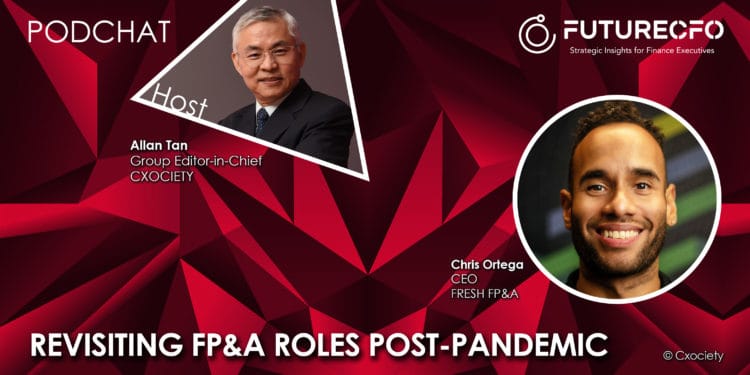Financial Planning and Analysis (FP&A) teams play a crucial role in companies by performing budgeting, forecasting, and analysis that support major corporate decisions of the CFO, CEO, and the Board of Directors.
According to the Corporate Finance Institute, FP&A professionals oversee a broad array of financial affairs, including income, expenses, taxes, capital expenditures, investments, and financial statements. Financial analysts are charged with examining, analysing, and evaluating the entirety of a corporation’s financial activities, and mapping out the company’s financial future.
Very few, if any, companies can be consistently profitable and grow without careful financial planning and cash flow management. The job of managing a corporation’s cash flow typically falls to its FP&A team and its Chief Financial Officer (CFO).
The value proposition for modern finance organisationsChris Ortega, CEO of Fresh FP&A, recalled that in the past, the office of the CFO mainly worked around growth and managing risk. During the pandemic, it stepped up and helped organisations navigate through the uncertainty and challenges, changing the value proposition for the finance organisations.
“Today, the modern finance organisations are expected to demonstrate four key traits: to be great collaborators, excellent communicators, connect the business and bring clarity to uncertainty.”
Chris Ortega
Factors contributing to the change in the role
Chris Ortega: Businesses have become more globalised with technology playing a major role in changing the way we operate.
The office of the CFO is now seen more as a business partner than just someone managing finances so there’s more collaborative work. And, with people realising their value and talent, the office plays an active role in driving the business culture.
How things have changed for the FP&A teams
Chris Ortega: FP&A traditionally was just data aggregation, data variances, budgeting, and forecasting. With technology, it has become FP&A 2.0. The work is completed a lot faster and even involves financial partnership and advising.
One most important skill for FP&A professionals is the art of storytelling. They need to be able to communicate and provide clear conclusions.
The biggest gaps for FP&A professionals
Chris Ortega: First is the business language. When a finance professional speaks to an outsider, it is usually not properly understood which is an issue because it impacts your storytelling.
This also translates as poor communication. As we collaborate more moving forward, we need to be able to connect and work with different people.
When does it make sense (or not) to outsource
Chris Ortega: We are seeing a rise in fractional roles, and it is valuable because when you look at the macro market, many organisations are cost conscious. People in fractional roles come with experience, knowledge, and expertise, and know how to bring immediate value.
The four key attributes in high-performance FP&A professionals are: open to new technologies, naturally curious, great collaborators and can connect with the business.
The relevance of certification
Chris Ortega: Back in the day, credentials like CPA and FP&A were desired but today, employers rather hire someone with experience. In an article by AICPA, there's been a steady decline in the number of CPAs in the past 8 years.
The thing is the exam does not reflect the ability of a person to be a great collaborator or be able to use technology.
Where do you see the FP&A role evolving over the next 3 to 5 years or so?
Chris Ortega: I am looking forward to how we redefine the roles of a CFO, FP&A and financial professional. We will become great business partners, help businesses navigate risk and uncertainty, and build a high-performance team and culture. This is possible when we put people before profits and with these initiatives, we create that legacy together.
Click on the PodChat player and hear out Ortega’s views on how CFOs are transforming the organisation and leading the function.
- What is the new value proposition for modern finance organisations?
- What are the key factors contributing to this evolution?
- What about the FP&A team, how have things changed?
- You said the new FP&A is a storyteller, where do you see the biggest gaps for FP&A professionals in the future?
- There is this trend in some functional areas for outsourcing. Your organisation offers CFO capabilities as a service. Given that FP&A requires an intimate understanding of the business and the organisation, is outsourcing FP&A even worth considering? And when does it make sense to do so?
- Speaking of skillsets, do you think certifications still bring a lot of value to the role?
- If you were to look into a crystal ball, where is FP&A 3 – 5 years from now?




